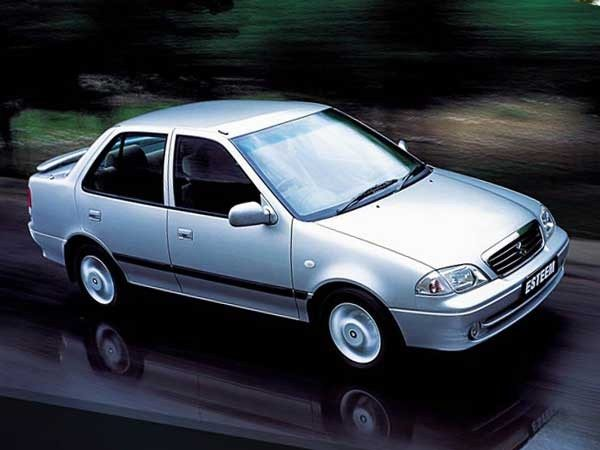Choosing the right car is a significant decision that can impact your daily life, finances, and even your overall satisfaction. With countless options on the market, ranging from compact city cars to spacious SUVs, finding a vehicle that perfectly aligns with your lifestyle can be daunting. This ultimate guide will help you navigate the process of selecting the ideal car, taking into account your specific needs, preferences, and budget.

Assess Your Lifestyle Needs
Before diving into the various car models available, it’s essential to assess your lifestyle and how a car fits into it. Consider the following factors:
Daily Commute
If you have a long daily commute, fuel efficiency should be a top priority. Look for vehicles with high miles per gallon (MPG) ratings or consider a hybrid or electric vehicle. On the other hand, if your commute is short, you may prioritize comfort or in-car technology over fuel efficiency.
Family Size
The size of your family plays a crucial role in determining the type of car you need. If you have a large family, an SUV or a minivan with ample seating and cargo space might be the best choice. Smaller families or individuals might find a sedan or a compact car more suitable.
Weekend Activities
Do you enjoy outdoor activities like camping, skiing, or biking? If so, consider a car with ample cargo space, all-wheel drive, and rugged durability. Those who spend weekends exploring city life might prefer a smaller, more maneuverable vehicle that’s easy to park in tight spaces.
Determine Your Budget
Budget is often the most critical factor when choosing a car. Your budget will determine whether you can afford a new car, a certified pre-owned vehicle, or a used car. Additionally, consider the total cost of ownership, which includes not only the purchase price but also insurance, fuel, maintenance, and depreciation.
Financing Options
Explore various financing options, such as loans, leases, or paying in full. Each option has its pros and cons, so it’s essential to choose one that aligns with your financial situation. Leasing may offer lower monthly payments but doesn’t provide ownership, while buying outright offers long-term savings but requires a significant upfront investment.
Long-Term Costs
When budgeting for a car, consider long-term costs like insurance premiums, fuel expenses, and maintenance. Research the reliability and resale value of the car models you’re interested in to ensure you’re making a financially sound decision.
Research and Compare Models
Once you’ve identified your needs and budget, start researching car models that fit your criteria. Compare features, prices, and reviews to narrow down your choices. Consider visiting dealerships to test drive different models and get a feel for what suits you best.
Fuel Efficiency and Environmental Impact
In today’s eco-conscious world, fuel efficiency and environmental impact are crucial considerations. Hybrid and electric vehicles offer reduced emissions and lower fuel costs. Research the range of electric vehicles if you’re considering one, and ensure that charging infrastructure is accessible in your area.
Safety Features
Safety should never be compromised when choosing a car. Look for vehicles with advanced safety features such as automatic emergency braking, lane departure warnings, and adaptive cruise control. Check safety ratings from reputable sources like the National Highway Traffic Safety Administration (NHTSA) or the Insurance Institute for Highway Safety (IIHS).
Technology and Comfort
Modern cars come with a wide array of technology and comfort features. From infotainment systems with smartphone integration to heated seats and advanced driver-assistance systems, consider which features are essential for your daily driving experience. Prioritize cars that offer the technology and comfort options that matter most to you.
Evaluate Resale Value
Resale value is an important consideration, especially if you plan to sell or trade-in your car in the future. Some brands and models retain their value better than others. Research the depreciation rates of the vehicles you’re considering to ensure you’re making a wise investment.
Brand Reputation
Certain car brands are known for their reliability and longevity, which can significantly impact resale value. Brands like Toyota, Honda, and Subaru often have high resale values due to their reputation for quality. Additionally, luxury brands like Lexus and BMW tend to hold their value well in the used car market.
Make Your Decision
After thorough research and consideration, it’s time to make your decision. Choose a car that not only meets your practical needs but also fits your lifestyle and preferences. Remember to negotiate the best price, whether you’re buying from a dealership or a private seller.
Test Drive and Final Inspection
Before finalizing your purchase, take the car for a test drive to ensure it meets your expectations. Pay attention to comfort, handling, and any unusual noises. If you’re buying a used car, consider getting a pre-purchase inspection from a trusted mechanic to avoid any hidden issues.
Conclusion
Choosing the right car for your lifestyle involves careful consideration of your daily needs, budget, and long-term goals. By assessing your lifestyle, researching options, and considering factors like safety, fuel efficiency, and resale value, you can make an informed decision that will serve you well for years to come.

